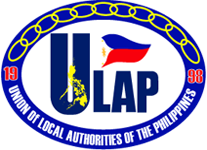“Magagaling kayo. Alam na ng national government ‘yan. Bidang-bida po kayo sa national discussions so we are here to consult with you.”
Czarina Medina-Guce, Executive Director of the Union of Local Authorities of the Philippines (ULAP), uttered these very inspiring words which lifted the spirits of the participants for the follow-up activity last Wednesday to the successful Bohol Education Convergence Summit held last April 23 in the Municipality of Dauis.
The Planning Workshop is to help support the “Development of a Model for Expanding Local Resources for Education in Local Government.”
Guce said that they chose Bohol because it has one of the best practices in local education in the country.
“We heard at the national level na hindi kayo nag-aaway dito sa Bohol; not like in other provinces. Bidang-bida kayo when we talk about education so we want to know what happens in Bohol,” Guce further elaborated.
She said that they are here to document the Bohol Model so they can identify appropriate steps in their upcoming projects.
Very well pleased with Guce’s well-deserved praises for Bohol, Gov. Edgar M. Chatto proudly explained that this is so in the province because our puroks are much stronger now than they were before due to the continued training and monitoring being done by the Countryside Development Program-Purok Power Movement (CDP-PPM) under the very able supervision of SEEM Cluster Head Liza Quirog.
The Local Education Workshop is a convergence of four agencies, namely: the Department of Education (DepEd), the Australian Agency for International Development – The Asia Foundation (AusAID-TAF), ULAP and the Provincial Government of Bohol (PGBh).
In looking at and understanding local education on the ground, the four agencies believe that they would be able to identify the best practices in local education governance.
Hence, by studying and understanding the Bohol Model, they believe that they would be able to document the process and replicate its lessons.
Gov. Chatto said that because the incumbent Provincial Leadership wants excellence for Bohol, it engages the help of all sectors to achieve total cooperation and collaboration in all its programs and projects.
In going down to the barangays and even to the purok level, relationships among the barangay officials, the PTA members, school officials and the community become closer and thus strengthened. This way, it is the people themselves who will own education, Chatto explained.
In relation to this, Guce admitted that one of their objectives for the workshop here is to document the Bohol Model of developing local alliances and expanding local resources for its education.
In their draft framework of the Bohol Model, they have noticed an innovation being implemented by the Provincial Government, called the Education Development Center (EDC), a unit solely mandated to monitor all activities regarding the province’s education system.
It is this innovation, she said, which serves as the link to all that’s happening in our cooperation and collaboration efforts and success that they want to delve deeper into, understand, and most probably, will use as model for the education system in the country. (jlv/EDCom)ULAP co-organized the summit in partnership with DepEd under the Coalitions for Change (CfC) for Education, a program under the Australian Department of Foreign Affairs and Trade (DFAT) and The Asia Foundation (TAF) Partnership in the Philippines. Under CfC, Bohol serves as a model for provincial government’s expansion of local resources for education.




